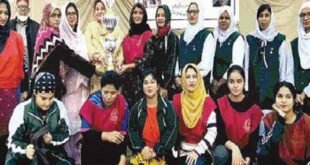The Legacy of Muhammadu Buhari in Nigerian Sports
Muhammadu Buhari, Nigeria’s former president, has had a significant impact on the nation’s sports landscape, both during his brief military rule and his subsequent democratic tenure. His two stints in power, separated by nearly four decades, have left an indelible mark on Nigerian sports, marked by moments of triumph and challenges that reflect broader national struggles.
Sports Under Buhari’s Military Rule
Buhari’s military administration, which lasted from December 31, 1983, to August 1985, was characterized by strict economic controls and a focus on national discipline. While sports were not a top priority, several notable events occurred that shaped the trajectory of Nigerian sports.
High Points
AFCON 1984 Silver Medal: The Nigerian national team, known as the Green Eagles, reached the final of the 1984 Africa Cup of Nations (AFCON) in Côte d’Ivoire, losing to Cameroon. This performance highlighted Nigeria’s footballing prowess on the continent.
FIFA U16 Victory in China: Coached by Sabastine Broderick-Imasuen, the Golden Eaglets won the inaugural FIFA U16 World Championship in China in 1985, defeating Germany 2-0 in the final.
Flying Eagles’ Moscow ’85 Bronze Medal: The Flying Eagles won bronze at the FIFA Youth Championship in Moscow, showcasing the talent developed under Buhari’s regime.
Rising Athletics Stars: Athletes like Chidi Imoh and Sunday Uti emerged, contributing to Nigeria’s growing presence in global athletics.
Domestic Football Boom: Clubs such as Leventis United and New Nigerian Bank FC thrived locally, with the National Sports Festival serving as a talent incubator despite economic constraints.
Low Points
1984 Olympic Boycott: Nigeria joined a boycott of the Los Angeles Olympics, depriving athletes of international exposure and career opportunities.
Underfunding and Infrastructural Neglect: Austerity measures led to neglect of sports infrastructure, pushing it down the government’s priority list.
Sports Under Buhari as President
When Buhari returned as a democratically elected president in 2015, the sports sector was already in a state of decline. His administration’s efforts yielded mixed results, with some achievements and persistent challenges.
High Points
Women’s Football Dominance – Super Falcons: The Super Falcons won back-to-back WAFCON titles in 2016 and 2018, with players like Asisat Oshoala and Desire Oparanozie gaining international recognition.
Tokyo 2020 Olympics: Nigeria secured two medals—Ese Brume’s bronze in long jump and Blessing Oborodudu’s historic silver in wrestling—despite limited resources.
Tobi Amusan’s World Record (2022): Tobi Amusan set a world record in the 100m hurdles, becoming Nigeria’s first world champion in athletics.
D’Tigress Dominance in African Basketball: The women’s basketball team, D’Tigress, won multiple AfroBasket titles, establishing themselves as a powerhouse in African basketball.
Commonwealth Games 2022: Nigeria achieved its best performance at the games, finishing 7th with 35 medals.
Paralympic Success: Nigerian para-athletes continued to excel, winning 10 medals at the Tokyo 2020 Paralympics.
National Sports Festival Revival: The Edo 2020 and Delta 2022 editions revitalized the festival, serving as a platform for talent discovery.
Wrestling Revolution: Blessing Oborodudu and Odunayo Adekuoroye brought Nigerian wrestling to the global stage.
Flamingos’ Historic Bronze (2022): The U-17 women’s team won a bronze medal at the FIFA U17 Women’s World Cup, marking a historic achievement.
WAFU Triumphs: The Golden Eaglets and Flying Eagles won WAFU B tournaments, qualifying for the 2023 AFCON.
Honour for 1985 Victorious Golden Eaglets: Buhari honored the 1985 U-16 team, fulfilling a long-standing promise and symbolizing closure for many Nigerians.
Infrastructure Rehabilitation: Key sports facilities were revived through private sector partnerships, although some have since deteriorated.
National Sports Industry Policy (2022): A blueprint aimed at transitioning sports into a commercially viable sector was launched.
National Sports Commission (NSC) Act 2023: Buhari signed the NSC Act on his last day in office, marking a significant legislative milestone for sports governance.
Low Points
Controversial Appointments: Buhari faced criticism for appointing Solomon Dalung, a lawyer, as minister of youth and sports.
Super Eagles’ Qatar 2022 Mishap: The team failed to qualify for the FIFA World Cup after a draw against Ghana, leading to public outrage.
AFCON 2022 Disappointment: The Super Eagles crashed out of the tournament, sparking criticism.
2023 CHAN Eagles’ Failure: The domestic Eagles also failed to qualify for the CHAN.
Super Falcons’ WAFCON Struggles: The team finished fourth at the 2022 WAFCON, marking a rare medal-less outing.
D’Tigers Decline: While the D’Tigress thrived, the D’Tigers struggled with inconsistency and internal disputes.
Persistent Bonus and Allowance Issues: Athletes across various sports faced late or nonpayment of allowances, leading to public protests.
Sports Federations’ Crisis: Federations like the NFF and NBBF faced repeated crises, affecting national team performances.
D’Tigress Kicked Out of FIBA World Cup: The federal government withdrew all basketball teams from international competitions due to issues in the NBBF.
Conclusion
Buhari’s impact on Nigerian sports is a tale of unrealized potentials balanced with iconic moments of brilliance. While he may not have been deliberate about sports development, his tenure coincided with major achievements, especially in women’s sports, parasports, and individual athletic feats. However, the sector remained bogged down by poor funding, administrative disorder, and lack of long-term planning. In many ways, Nigerian sports under Buhari mirrored the state of the nation—full of talents, weakened by structure, yet powered on by sheer determination.
 Info Malang Raya Its All About World News
Info Malang Raya Its All About World News




